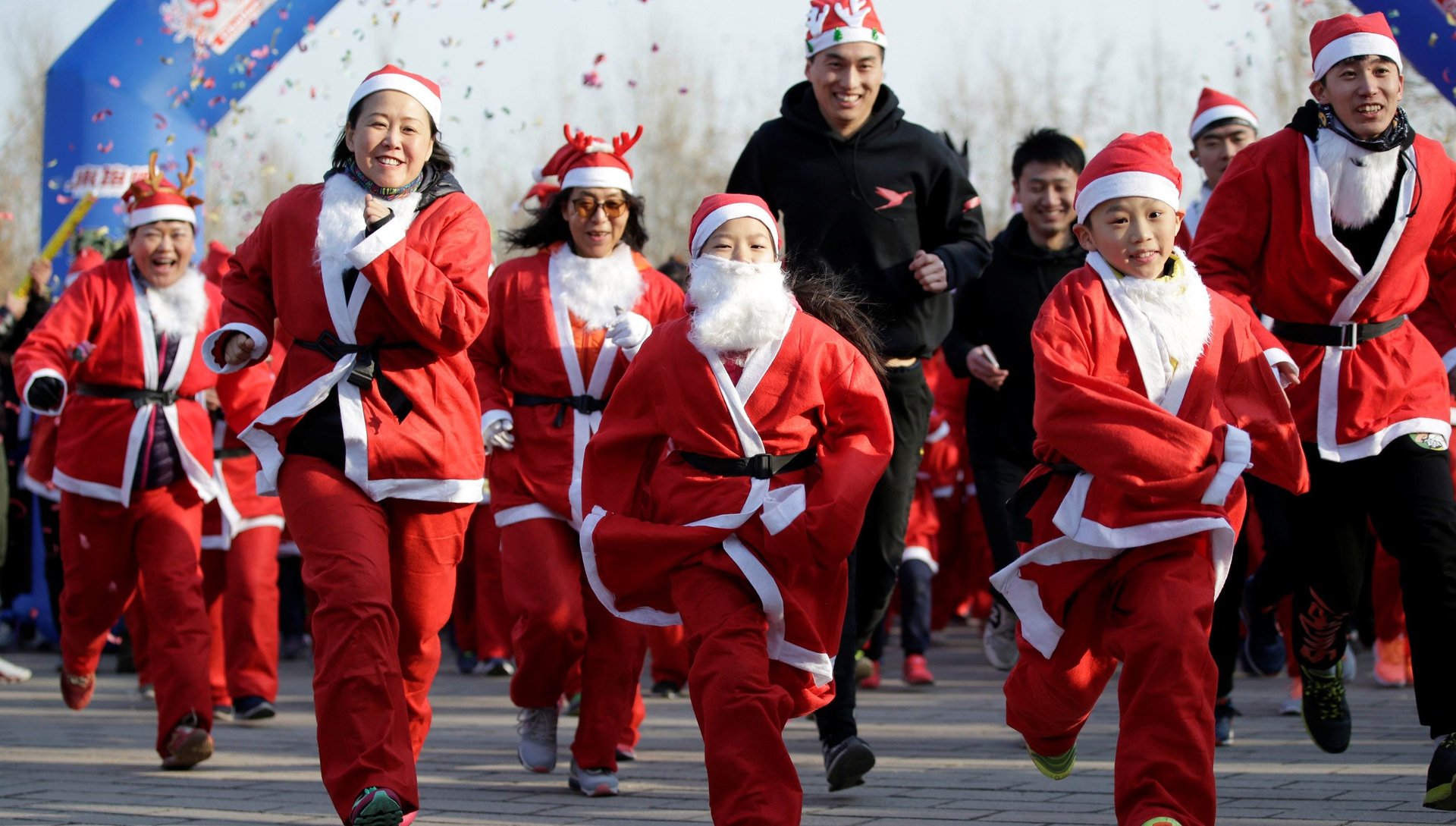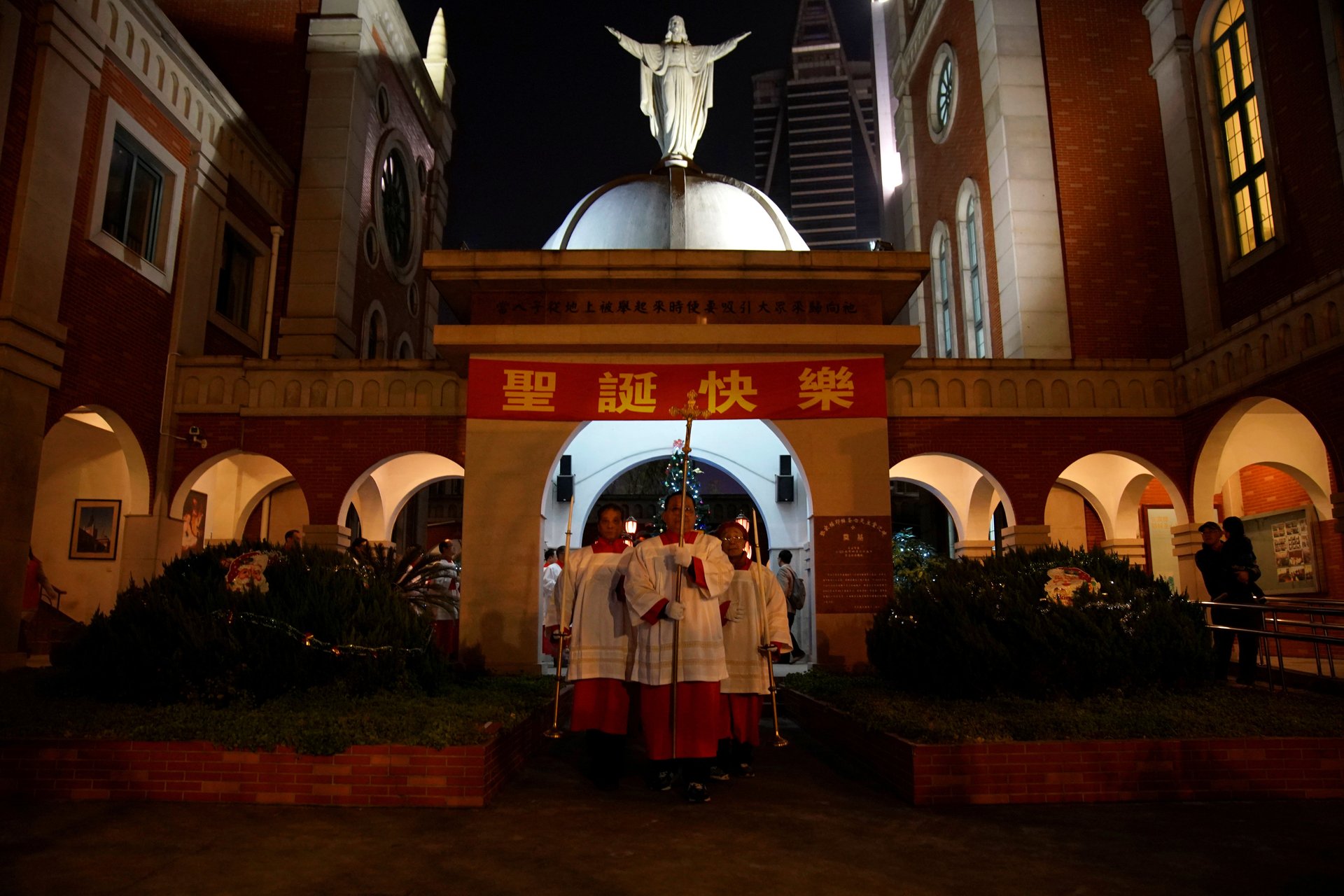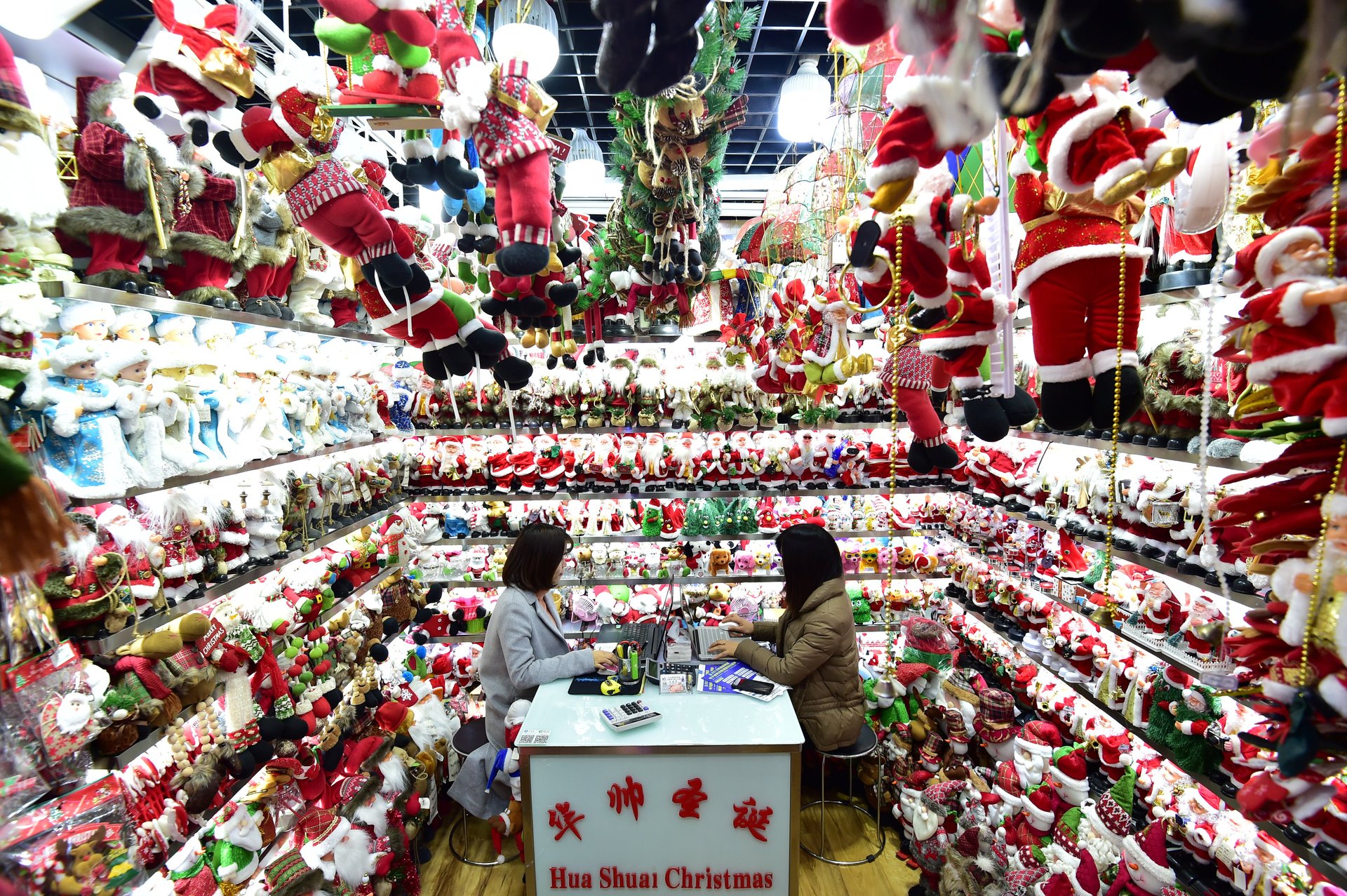China’s war on Christmas hasn’t deterred kids from sending thousands of letters to Santa
One Christmas, 12-year-old Wang’s classmate died of cancer. It was the first time one of her friends had passed away, and she wasn’t sure how to feel. Wang had written a letter to Santa the year before, so she decided to sit down and write another. This time, she shared her feelings.


One Christmas, 12-year-old Wang’s classmate died of cancer. It was the first time one of her friends had passed away, and she wasn’t sure how to feel. Wang had written a letter to Santa the year before, so she decided to sit down and write another. This time, she shared her feelings.
“I’m not going to devote this whole card to talking about Christmas and presents,” she wrote in English in an undated letter sent to St. Nick in Rovaniemi, Finland, which bills itself as the “official hometown of Santa Claus.” The town’s post office, which shared the letter, asked Quartz to not publish the full name of the writer to protect her privacy.
“Yesterday, I found out a girl in my dance class died. How did the girl feel when she learned she had cancer? I hope the girl is happy now. Sometimes, life doesn’t go the way you wish. But you have to stand up and control your own life. Because you’re the only one who has the ability to change it.”
Wang is among a fast-growing number of people from China who are writing to Santa. The Santa Claus Village’s main post office in the Arctic Circle receives some 500,000 letters annually from across the world, the majority of which are from Greater China, the office says, a region that also includes Taiwan, Hong Kong, and Macau.
Last Christmas, Santa received a record 16,500 letters from mainland China, making up 15% of the approximately 110,000 letters from the region. In 2014, Greater China overtook the United Kingdom, Italy, and Poland for sending the most letters. Santa’s rising popularity, however, is a stark contrast to China’s ongoing war on Christmas.
Banned Christmas
Chinese enthusiasm for Christmas isn’t necessarily surprising considering the holiday’s commercial appeal, growing Chinese exposure to the West through media and study abroad, and recent efforts by Finland to attract Chinese visitors to Rovaniemi. But the phenomenon also coincides with an intensifying government crackdown on Christianity and Western influences more broadly from NGOs to international-style education.
Unlike in Hong Kong, Christmas is not an official holiday in mainland China, and has in fact increasingly been banned in various cities in recent years. On Dec. 15, security officials in Langfang, a city in Hebei province, issued a notice prohibiting the display of Christmas materials and spreading of “religious propaganda” in public areas including schools and plazas, according to ChinaAid, a US-based group that advocates for religious freedom. The notice also warned against selling Christmas products and instructed local workers to ensure a “healthy and orderly environment” during the Christmas period.
Last Christmas, some local governments, Communist Party organizations, and schools also restricted celebrations. One city even said it would fine individuals caught selling or making fake snow, the Financial Times reported (paywall). State-backed Chinese media last year denied a national Christmas crackdown and insisted local bans were for maintaining security. Critics, however, believe that the grounds of maintaining security are little more than a front to restrict what little religious freedoms remain in China.
This month, China’s Christian churches are witnessing an intensifying attack on their freedom to worship, starting with the detention of more than 100 worshippers attending an unofficial congregation held by the Early Rain Covenant Church in Chengdu, one of the few house churches that operates in the open. While many were subsequently released and placed under surveillance, the church’s prominent pastor and his wife remain in custody, having been arrested on allegations of “inciting subversion of state power.”

Chu Yanqing, an underground “family church” leader in Beijing, told Quartz that the crackdown on unofficial congregations has intensified since 2016, and that Christmas continues to be a difficult time. A former member of Shouwang Church, the largest unofficial Protestant congregation in the capital before it was shut in 2011, he recalls holding public Christmas celebrations with over 300 people a decade ago. Such an event would be impossible now, he said, adding that even festivities in official churches are subject to scrutiny.
“Every Christmas, police will monitor churches. I’ve never heard of anything dangerous happening, but they do it because they’re worried,” he said. Instead of celebrating on Christmas Eve or Christmas day this year, he plans to hold a gathering of fewer than 30 people after the holiday has passed.
Christmas without Christ
Despite China’s political wariness of Christmas, its commercial potential is unmissable. Secular decorations are ubiquitous in shopping malls, and the holiday is now promoted as a sort of hump-day shopping period between the retail bonanza of Singles’ Day on Nov. 11 and the Lunar New Year. China’s manufacturing sector has also built a $5.6 billion industry around the holiday, churning out fairy lights and other festive goods, Bloomberg reported (paywall). Production in the manufacturing hub of Yiwu alone accounts for 60% of the world’s Christmas decorations.

Overseas travel has also fueled China’s Christmas frenzy. In 2016, Finnish organizations partnered with Alibaba to launch a campaign promoting tourism to Finland, with the Santa village in Rovaniemi as one of its main attractions. The city was also designated as a “friendship town” of Harbin, the wintry capital of Heilongjiang province. In 2010, Xi, then vice president of China, went to Rovaniemi and posed for photos with Santa during an official visit.
Statistics from Visit Rovaniemi, which promotes the city as a tourist destination, show that registered overnight stays from Chinese visitors have rapidly increased in the past decade, from 3,300 visits in 2010 to 32,349 last year. Sanna Kärkkäinen, managing director of Visit Rovaniemi, said the city set up an account (link in Chinese) for Santa on Chinese social network Weibo, and incorporated the Alipay payment system in 2016 to cater to Chinese tourists.
In the town’s main post office, letters from China in all shapes and sizes are stacked in a cabinet in the corner. Some are scrawled on colorful stationery and peppered with drawings of classic Christmas icons. Others are carefully written on rice paper in traditional Chinese calligraphy. Many are bilingual.
Most Chinese children may not be fully aware of Christmas’s religious background nor of China’s complicated relationship to the holiday. Still, the universal values of Christmas—generosity, hope, and gratitude—are what’s driving them to write to St. Nick.
Growing up in Beijing, Zhang first learned about Santa from elementary school teachers, who stressed he was nothing more than a fictional character of Western culture. Despite this, she became fascinated by the concept of Santa and began admiring the spirit of giving he represents—so much so that when she turned 19 in 2011, she decided to write him a letter.
“In China, we don’t have Christmas, and family is more important than gifts,” she wrote in both English and Chinese. ”But you know, one small present can mean so much to a child, and bring so much happiness. Although you don’t really exist, kindness does. In my heart, you represent kindness.”